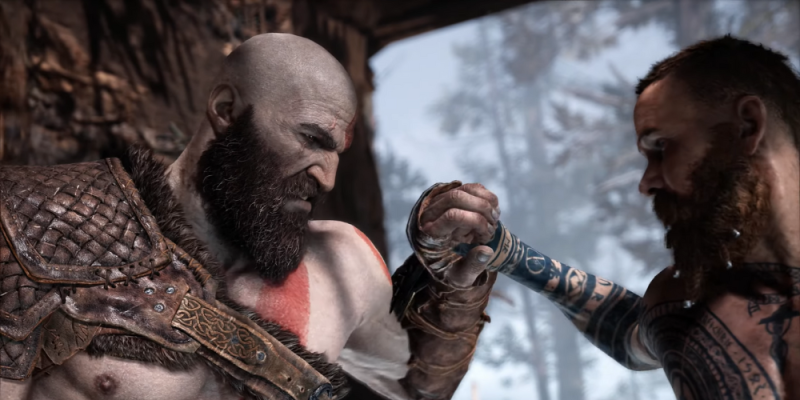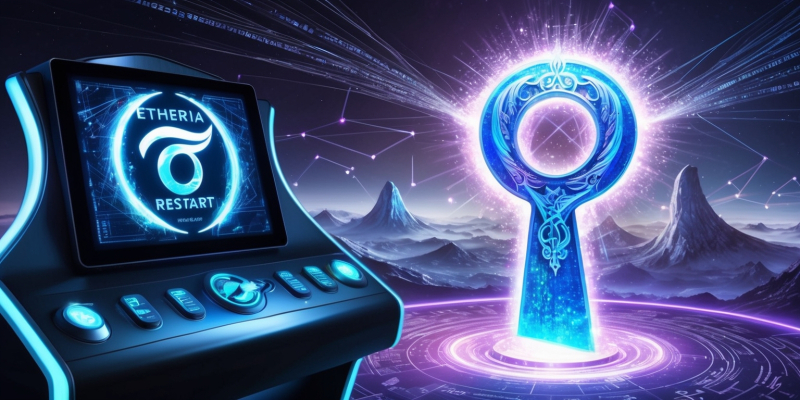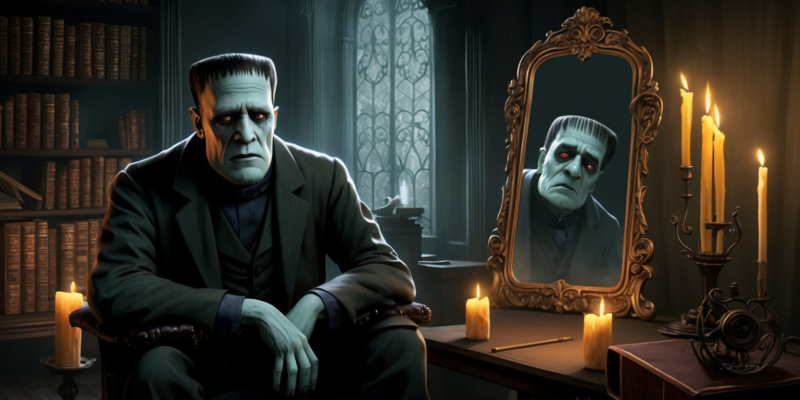God of War: An In-depth Look at Norse Mythology Locations

The video game series God of War has masterfully crafted an unorthodox niche in the vast universe of video gaming. This feat is achieved through an elaborate integration of elements and tales from ancient mythologies into its core narrative. This integration extends not only to the storyline and characters but also includes the immersive world-building that sets it apart in its genre.
The recent installments of the franchise have notably taken a significant shift, diverting their attention from the realms of Greek mythology, which had been the soul of its predecessors, to unearthing the rich narratives intrinsic to Norse mythology. The Norse mythology, fertile with beautifully complex narratives and a pantheon of iconic godly and mortal characters, has breathed new life into the series. The new entries strut intricately woven sagas, integrating lore and lessons from Norse mythology, thoroughly enriching the storytelling and offering a unique gameplay experience.
This article is intent on providing an in-depth exploration into the various locales that the recent games in the series have introduced. These locations, all drawn from Norse Mythology, are more than just backdrops for the characters' actions. They are distinguishing entities in their own right that contribute significantly to the charm and lore of the franchise. From Midgard, the realm of humans, to Asgard, the home of gods, each location brims with its own stories, obstacles, allies, and adversaries, all drawing roots from Norse mythology.
Whether you're a committed fan of the series, a Norse mythology enthusiast, or someone fascinated by the amalgamation of video gaming and mythologies, this examination of the God of War's portrayal of Norse realms aims to entertain and inform, shedding light on how the series has breathed life to ancient tales via its unique approach to world-building and narrative development.
1. Midgard
Within the framework of Norse mythology, Midgard holds a special place as the realm of humans. It offers a unique realm, caught in the middle of the divine and the deadly. On the one hand, it shares a cosmic neighborhood with Asgard, the home of gods, while on the other hand, it is adjacent to the somber realm of the dead, known as Hel.
In this mythology, Midgard is not just a realm but a pivotal hinge that connects and maintains equilibrium between the realms of the gods and the dead. This positioning speaks to the transience and duality of human existence - living between divinity and mortality. It underscores our instinct for survival and growth while not ignoring our inevitable end.
When we delve into the universe of the God of War series, Midgard takes center stage. It is the primary platform where the stirring tale of the protagonist Kratos and his son Atreus unfurls. Here, our valiant heroes battle beasts and gods alike, navigate treacherous terrains, and overcome cryptic puzzles. Each adventure in Midgard reveals a new aspect of their characters, the lore they are part of, and the world they inhabit.

In essence, in this prized video game series, Midgard is not just the soil beneath Kratos and Atreus's feet. It is a living, breathing entity, witnessing and nurturing their evolution. It is an active participant in their adventure whose essence weaves itself into the very fabric of their strife, victories, disappointments, and personal growth.
In the game, Midgard is a vast and diverse land, teeming with both dangers and beauty. There are ruins of ancient civilizations, dangerous creatures derived from Norse mythology, and a captivating landscape, giving a palpable sense of isolation, danger, and exploration.
2. Asgard
Asgard, in traditional Norse mythology, is known as the home of the gods, or more specifically, the Aesir gods such as Odin, Thor, and others. While it's not directly visited in God of War, its influence and presence are deeply felt throughout the series.
The potency of its gods, their ongoing conflicts, and their influence on the other realms are ever-persistent in the narrative and world-building. Asgard's mysterious and unexplored nature further empowers its narrative weight and consequential capacity.
3. Jotunheim

Jotunheim, in traditional Norse lore, is the land of the giants, who are not necessarily oversized beings but are instead known for their uncanny ability to foresee the future. In God of War, this realm serves an important role in both the story and the gameplay as it's the final destination in Kratos and Atreus' journey.
The game represents Jotunheim as a desolate yet enchanting land, with towering cliffs, huge structures, and murals showcasing the prophecy of Ragnarok. The realm ties directly into the larger narrative of the game and provides a substantial pay-off to Kratos and Atreus' journey.
4. Helheim
In Norse mythology, Helheim, or simply Hel, is the realm of the dead. Traditionally, it's depicted as a dreary, cold place, a characteristic mirrored in its portrayal in God of War.
The depiction of this realm is chilling, hostile, and somber. It incapacitates Kratos' ability to use his light-based weapons, thereby radically changing the gameplay mechanics. From a narrative standpoint, it serves as a vessel to tap into Kratos' psychological state and his underlying fears.
5. Alfheim

Alfheim, in Norse mythology, is the land of Light Elves. Its portrayal in God of War revolves around the dichotomy of light and darkness, with the ensuing conflict between the Light and Dark Elves forming a significant subplot of the story.
The game's level design for Alfheim is markedly different from other realms, filled with vibrant plant life, shimmering water and light sources, and arcane structures. This realm's exploration significantly expands Kratos and Atreus' understanding of Norse mythos and the world they inhabit.
6. Conclusion
The God of War series offers a unique and captivating exploration of Norse myths and deities by immersing players in a carefully constructed world echoing the resonance of these ancient tales. Each location, a realm of Norse mythology, brings forth a unique layer of storytelling and gameplay experience, thereby enriching the overall narrative and the world-building of the series.
Whether you are an avid gamer, a mythology enthusiast, or someone interested in thrilling narratives and enticing world-building, this exploration of God of War's portrayal of Norse mythology locations is sure to ignite your imagination and curiosity.
Most Popular
-
![]() Top Apps
Unlocking New Horizons: Strategic Codes and Dynamic Gameplay in Etheria Restart
In a realm where adventure meets opportunity, enthusiasts find themselves immersed in an enticing un...
Read more
Top Apps
Unlocking New Horizons: Strategic Codes and Dynamic Gameplay in Etheria Restart
In a realm where adventure meets opportunity, enthusiasts find themselves immersed in an enticing un...
Read more
-
![]() News
Unlock Legendary Thrills: Free Download and Massive Series Savings
This is an opportunity that brings together excitement and savings for fans of an iconic looter shoo...
Read more
News
Unlock Legendary Thrills: Free Download and Massive Series Savings
This is an opportunity that brings together excitement and savings for fans of an iconic looter shoo...
Read more
-
![]() News
Del Toro’s New Spin on Frankenstein: A Journey of Emotion and Reflection
This update introduces a fresh take on a classic narrative, as Oscar Isaac shares some intriguing de...
Read more
News
Del Toro’s New Spin on Frankenstein: A Journey of Emotion and Reflection
This update introduces a fresh take on a classic narrative, as Oscar Isaac shares some intriguing de...
Read more



